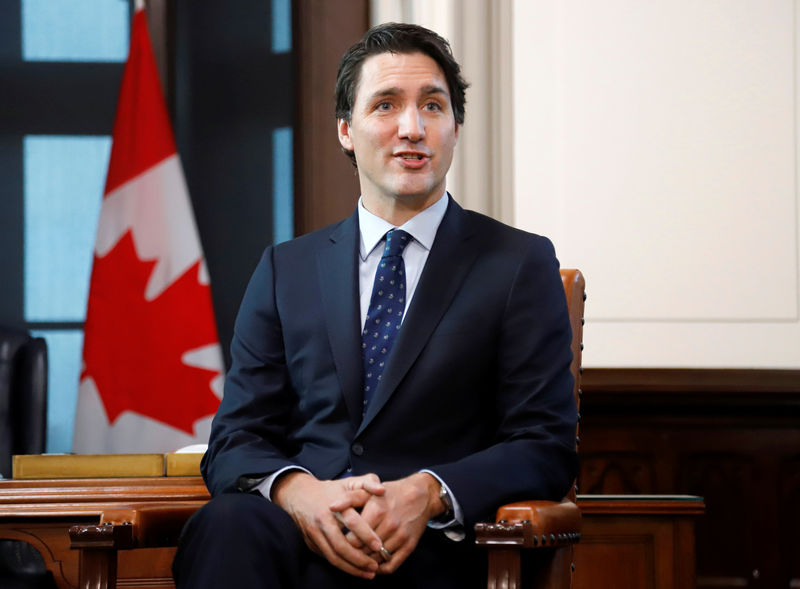By Steve Scherer
OTTAWA (Reuters) - Canadian Prime Minister Justin Trudeau on Wednesday shuffled his cabinet and moved Foreign Minister Chrystia Freeland into a new job where she will be asked to help tackle a looming national unity crisis.
Freeland, who rose to prominence by leading Canada's team at talks to renegotiate a new continental trade deal, becomes minister of intergovernmental affairs and also takes on the more symbolic role of deputy prime minister.
She will deal with the western oil-producing provinces of Alberta and Saskatchewan, where anger is growing over tough environmental protection laws that critics say could cripple the energy industry.
Trudeau's Liberals lost their majority in an October election and now have no legislators in either province. Polls show separatist sentiment is growing, especially in Alberta.
"Whether it's making life more affordable for the middle class, taking action on climate change or keeping our communities safe we will continue working tirelessly for all Canadians," Trudeau said in a statement on Wednesday.
Freeland is close to Trudeau and his team of advisers, who see her as one of the strongest members of cabinet. She is often touted as a possible successor to Trudeau.
"You put your best players in the government where they're most needed," said a Liberal official who requested anonymity because of the sensitivity of the situation.
National unity tensions are a particularly painful issue in Canada, where the province of Quebec held a 1995 referendum on independence that failed by a narrow margin.
Trudeau is under pressure from western industries to quickly to end a strike by workers at Canadian National Railway, the country's largest rail network, which is hitting exports such as grain and oil.
Trudeau named former Trade Minister Jim Carr, who is suffering from cancer, to act as his special representative for Alberta, Saskatchewan and the central province of Manitoba to ensure they had "a strong voice in Ottawa."
The tough environmental laws that so angered the provinces were authored by Catherine McKenna, who moves from environment to the less visible position of infrastructure minister.
In a possible signal to the West, McKenna will be replaced by Jonathan Wilkinson, who backs the proposed expansion of a crude pipeline from Alberta to the Pacific coast that the energy industry says is vital and that environmentalists oppose.

Freeland was replaced by Francois-Philippe Champagne, previously the infrastructure minister. Finance Minister Bill Morneau stayed in his job.